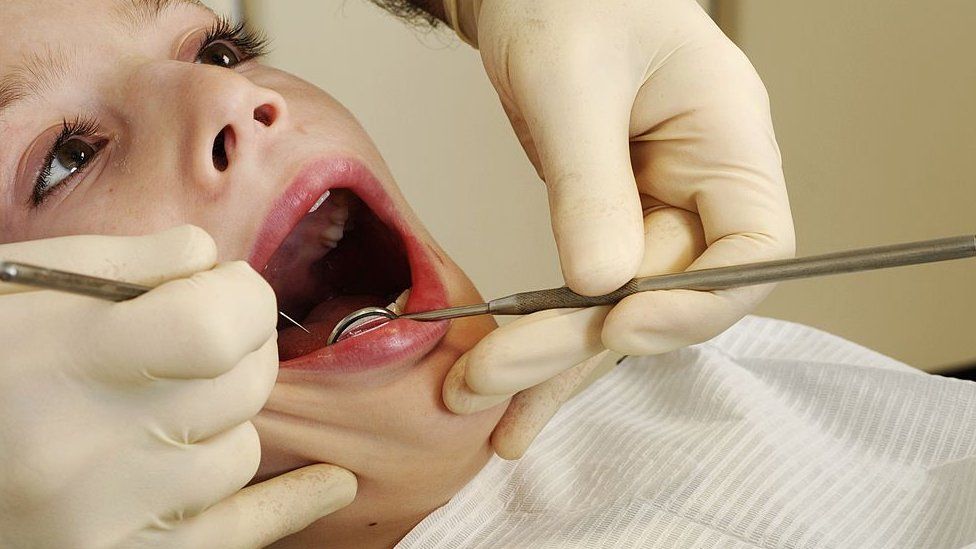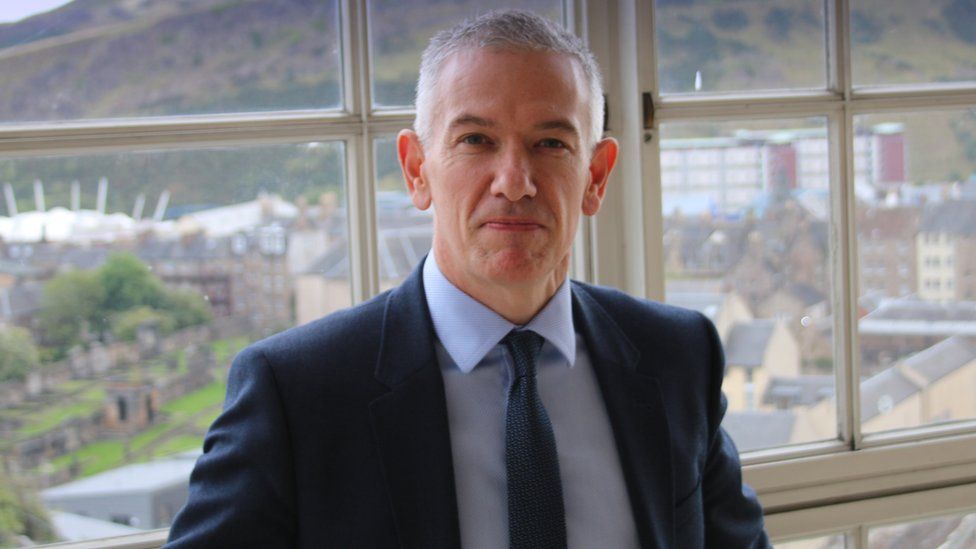Adding fluoride to drinking water in Scotland would save the NHS “a fortune” in preventing tooth decay, says a leading dental professional.
NHS Greater Glasgow and Clyde have confirmed they are considering putting fluoride in the city’s water supply.
Health boards can ask Scottish Water to introduce it if they can show the support of local communities.
Robert Donald of the British Dental Association said it would be “safe, effective and save our NHS a fortune”.
Mr Donald, chair of the BDA’s Scottish council, told the BBC’s Good Morning Scotland programme: “The safety in the science is clear-cut.
It is already present in Scotland’s water but it is not at the optimal level to reduce tooth decay.
“If we up it to the optimal level, it is safe for all ages, be they toddlers, pregnant women or care home residents.”
The chief medical officers of the four UK nations – including Scotland’s Dr Gregor Smith – all backed the move to add more of the mineral to water supplies in an evidence-based review published last September.
They said it would cut cavities by 17% among children in the wealthiest households and 28% among the poorest, and reduce hospital admissions for teeth extraction by between 45% and 68%.
 Image source, Getty Images, Image caption,
Image source, Getty Images, Image caption, The review concluded “there is strong scientific evidence that water fluoridation is an effective public health intervention for reducing the prevalence of tooth decay and improving dental health equality across the UK”.
Mr Donald said recent data from Public Health England, where six million people already drink water with extra fluoride in, showed it led to a 50% reduction in dental decay for five-year-olds, particularly in deprived areas.
“This is relevant in Scotland because we had 30% of primary one kids experiencing decay in 2018,” he said.
“Dental extractions for children – there are about 2,500 on waiting lists just now – are the number one reason for hospital admissions.
“Not only is [fluoridation] effective, it can save our NHS a fortune. For every £1 spent on fluoridation, particularly in deprived areas, it can secure over £12 savings after five years, rising to nearly £22 after 10 years.
“This is due to the reduced treatment costs, and it also costs pennies per head to introduce.”
‘Entirely safe’
The move by NHS Greater Glasgow and Clyde comes more than four decades after “toothless granny” Catherine McColl won one of the longest-running civil actions in Scottish legal history, arguing Strathclyde Regional Council had exceeded its legal powers in its plan to put fluoride in residents’ water.
The victory by Ms McColl, who died aged 97 in 2012, was hailed by supporters as a victory for ordinary citizens.
But to opponents, it was viewed as a missed opportunity to improve dental health in a region with one of the poorest records of tooth decay in Europe.
“That case was won because it was outwith the legal powers of Strathclyde Regional Council,” Mr Donald pointed out.
“Lord Jauncey, the judge in the case, rejected all the medical arguments against it, so it is entirely safe.
“It is also very effective because it reduces decay in children and consequently the pain and suffering, the misery and disfigurement caused by dental fillings and extractions.”

Image source, Scottish government
Scotland’s chief medical officer Dr Gregor Smith is among those to back adding more fluoride to drinking water
Mr Donald dismissed as “bogus” claims that adding fluoride into drinking water could lead to an increased risk of cancer, and change the water’s taste.
“The water fluoride doesn’t taste of anything,” he added. “It is already in our water but it is at a lower level than is optimal.
“The four chief medical officers have said there is no evidence that it causes cancer or other health risks. In fact, they condemn the over-exaggerated, unevidenced claims about health risks.”
In the Scottish government’s 2018 Oral Health Improvement Plan, it noted that water fluoridisation “would make a positive contribution to improvements in oral health”.
But at the same time it said “the practicalities of implementing this means we have taken the view that alternative solutions are more achievable”.
Those include the Childsmile programme, initially designed to help children up to five develop healthy toothbrushing habits and fluoride application. It has now been extended for dentists to claim for young people up to 17.
A Scottish government spokesperson said water fluoridation legislation gives health boards the option, “where they can demonstrate the support of local communities for such a move”, to ask Scottish Water to introduce it in their area.
“No such proposals have been put to the Scottish government,” the spokesperson added.
*Original article online at https://www.bbc.com/news/uk-scotland-glasgow-west-61010060
- April 6. BBC Bitesize: Fluoridation definition.
- September 3, 2018. BBC World News Discovery: In their element – Fluorine and discussion of Fluoridation.
